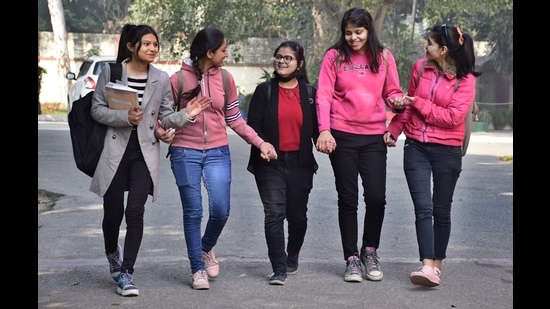A gender equality framework for India’s sciences and tech disciplines
Greater gender equality in STEM is crucial, and in the larger interest of scientific progress and society. Currently, India is looking at a paradoxical situation where women are studying STEM subjects but there are not as many women in STEM careers.
Gender equality is a human right, and according to the United Nations (UN), is essential to both ensuring sustainable development and maintaining peace around the world. Diversity is essential to delivering excellence in Science, Technology, Engineering and Mathematics (STEM). Encouraging greater diversity allows scientific organisations to derive an “innovation dividend” that leads to smarter, more creative teams, hence opening the door to new discoveries.

The latest All-India Survey on Higher Education (AISHE) report suggests that India’s gender gap has narrowed in comparison with the past few years. Female students now constitute almost half (48.6%) of the total enrolment in higher education. The Government of India’s initiatives for gender advancement and equality in academic and research institutions are helping women succeed in STEM fields. Despite facing challenges, women in India are moving up the academic and administrative ladder by breaking down both systemic and structural barriers to excel in STEM.
However, women constitute only 14% of the 280,000 personnel in STEM in India’s research development institutions (UN data). In addition, although women’s participation in the workforce is higher at entry-level, it gradually decreases at higher research, academics and administration levels.
Greater gender equality in STEM is crucial, and in the larger interest of scientific progress and society. Currently, India is looking at a paradoxical situation where women are studying STEM subjects but there are not as many women in STEM careers. In order to level the playing field, there is a need for policies and frameworks that promote the representation and advancement of women in science careers. These have been successfully designed and implemented in countries such as the United Kingdom (UK), Australia and Canada. A framework supporting and transforming gender equality in STEM education and research can act as a guiding light, and can foster accelerated gains in representation of women in crucial STEM fields.
A gender equality framework recognises the advancement of gender equality as key to removing structural barriers, including social, cultural and economic barriers that prevent women from achieving their full potential. By enabling STEM institutions to conduct a thorough self-assessment, the framework can help identify barriers and norms that are unique to an institution, department or discipline and introduce actions to address them.
Equal representation alone will not guarantee achieving gender equality. A framework can set gender equality benchmarks by collecting qualitative data to determine if barriers exist and what actions could be introduced to tackle them. These qualitative criteria can range from promotion of inclusive practices in the workplace to increase retention of women in STEM careers to creating support structures for career progression for women scientists.
Besides helping institutions improve gender equality, such a framework can also assist institutions in meeting requirements and expectations of national and international funders and research councils.
The UK has pioneered the Athena SWAN Gender Equality Charter and the Accreditation System which started in 2005. Recognising the evidence-based approach to research, intervention and demonstrable effects of the framework, many countries have joined the Athena SWAN collaborative international network, including United States, Australia, Canada, Ireland. With the launch of Gender Advancement for Transforming Institutions (GATI), India too has joined the list. While learning from and the success of Athena SWAN, it is focused on the Indian context and realities. The Department of Science and Technology has undertaken the programme in partnership with the British Council. Key elements of the project include capacity-building through training and supporting participating institutions in self-assessment through collaboration with Athena Swan-awarded UK institutions in their gender equality journey.
Gender Equality frameworks such as GATI will bring about a shift in approach in technical institutions and will also inspire senior leaders to take every possible action to attract, hire, retain and promote more women in India’s STEM fields. While India has been making strides in this space in terms of a more equitable enrolment ratio, a gender equality framework for higher education institutions will translate into India achieving a substantial milestone. This will not only be consistent with the ambitious goals of NEP 2020 but also be crucial in aligning to United Nations Sustainable Development Goal 5.
Barbara Wickham is director-India, British Council
The views expressed are personal



